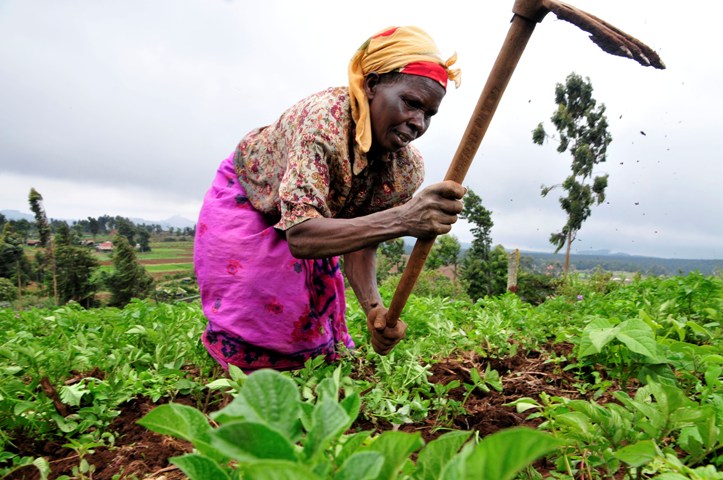UNDP deploys US$500 million of GEF funds to scale up fight against biodiversity loss and climate change
UNDP will also help to operationalize GEF’s Small Grants Programme, a key channel for supporting local communities, indigenous people and youth on environmental stewardship.

The GEF has announced an unprecedented and “game changing” US$1.4 billion fund to rapidly tackle environmental crises around the world, including biodiversity loss and climate change. The program aims to directly benefit 14 million people globally, over half of whom will be women disproportionately impacted by planetary crises.
In an immense milestone for the UNDP-GEF Partnership, more than US$500 million will be deployed across 88 countries, in particular Least Developed Countries and Small Island Developing States. As lead agency for the fund’s Blue and Green Islands Integrated Program, UNDP with support from United Nations agencies and development partners, will help countries to use the resources to address intense environmental and socio-economic shocks faced by people on frontlines of nature loss and the climate crisis. UNDP will also help to operationalize GEF’s Small Grants Programme, a key channel for supporting local communities, indigenous people and youth on environmental stewardship.
The new funding will be channeled to align strongly with the Kunming-Montreal Global Biodiversity Framework targets for nature, scaling up efforts to finance from the public and private sector and tackle biodiversity loss and climate change mitigation as a priority. Resources will also be deployed to protect forest conservation, fight chemical and plastic pollution, and restore ecosystems, catalyzing sustainable blue and green pathways towards the Sustainable Development Goals.
“This groundbreaking funding is critical to support countries to urgently restore and manage biodiversity while adapting to a changing climate. UNDP welcomes the decision of GEF to scale up its cooperation and we’re committed to delivering on our ambitious plans. We need a quantum leap in climate action. We have improved our systems, expertise and expanded our network of partners. Now our commitment is to double-down on efforts to work with our partners to rapidly scale success and build on what works for people and planet”, said Haoliang Xu, UN Assistant Secretary-General and Director of UNDP’s Bureau for Programme and Policy Support.
UNDP’s support to countries aims to set the stage to unlock an additional US$9 billion in capital across 88 countries, from the public sector, private sector and development banks, by de-risking policy and providing incentives. This will enable businesses and Small and Medium Enterprises to thrive and transition towards more resilient, sustainable and low-carbon business practices. In addition, communities will receive more support to seize opportunities and protect and restore natural resources, nurturing biodiversity hotspots of global importance.
The new work programme underscores the collective strength of the GEF partnership and the unique expertise and geographical coverage which members bring to the table. It includes over $137 million for the UNDP-implemented Small Grants Programme, which builds on more than 30 years of work to channel funding directly to indigenous and other local communities, driving locally led action to enhance wellbeing, socioeconomic and environmental benefits.
“UNDP has supported the government to protect watersheds and exceptional marine and terrestrial biodiversity and meet Nationally Determined Contribution targets of the Paris Agreement, such as through the “One Comorian, One Tree” reforestation campaign”, said Mr. Houmed M’Saidié, Minister of Agriculture, Fisheries, the Environment, Tourism and Handicrafts and Government Spokesperson, Union of Comoros
“This support comes at a critical time for vulnerable countries, to scale up existing successes and tackle grave climate threats through sustainable and climate resilient agricultural and water management practices. This will minimize harmful land use such as deforestation, incentivizing instead restoration and ecosystem protection, to build a more resilient future and ensure that one is left behind for generations to come,” he added.
In another example from Djibouti, sea and marine biodiversity contribute significantly to economic growth. Given the scale and speed of new port infrastructure and other developments, the protection and safeguarding of marine ecosystems is more urgent than ever. UNDP’s support to the Government of Djibouti through the GEF, as well as other global funds such as the Green Climate Fund has been instrumental, both in the short-term to scale up and expand areas of marine biodiversity under protection, and in the long-term, to improve the management and monitoring of marine protected areas to ensure essential ecosystems remain beneficial, economically and socially, for future generations.
The 64th Council Meeting in Brazil is a stepping-stone to the once-every-four-years GEF Assembly, taking place in Vancouver in August. A Global Biodiversity Framework Fund is expected to be launched at the Assembly, bringing together government, business, and civil society representatives from across the GEF’s 185 member countries, with an emphasis on young people.
- READ MORE ON:
- climate change
- biodiversity
- UNDP
- United Nations Development Programme










